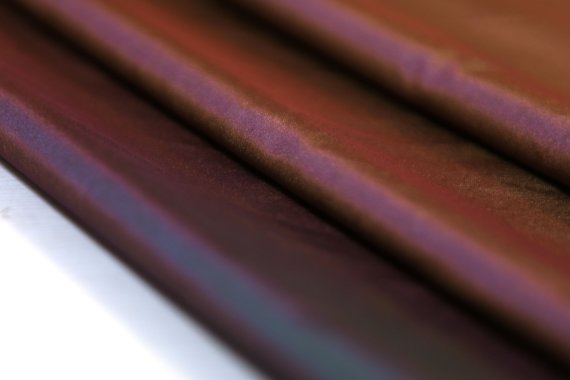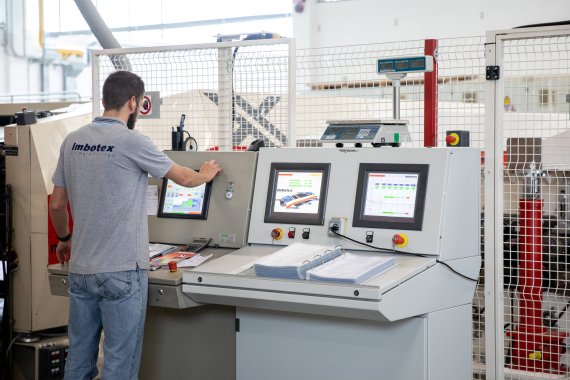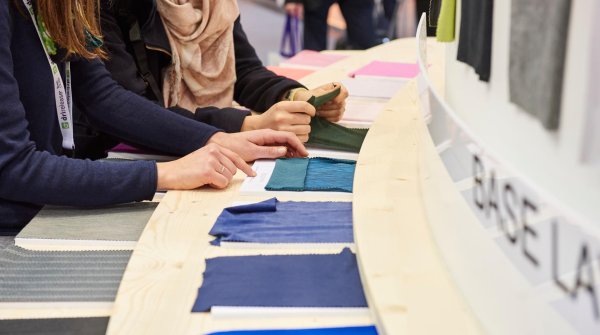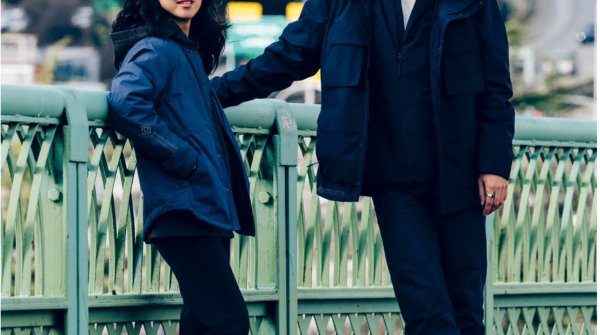Hardly any other industry is as global as the textile industry with its supply chains, which often span several continents. The consequences of the severe Covid 19 outbreaks in China and Italy, two of the industry's most important production countries, were felt early on by textile manufacturers worldwide.
At the beginning of April, a survey by the International Textile Manufacturers Federation (ITMF) came to the conclusion that 31 percent of all orders in the industry have been cancelled.
But how does the textile industry stand now, several months later? What changes is Covid-19 bringing about? ISPO.com has asked representatives of the following textile manufacturers:
The first effects can be seen in the fabrics themselves. "We put more thoughts on some special areas, especially protective and isolation cloth fabric and some anti-bacterial functions," says Leith Jin, Market Manager of Sunfeng Textile.
That's also how Sendyi Textile handles it. "The research and development of new products will take health protection more into account, antibacterial and antiviral. This will increase the functionality of the fabric," says Yanli Waang, Product Development Assistant at Sendyi Textile.

But often it is the communication of the new fabric properties to potential customers or partners that is made more difficult by the Corona crisis: international air traffic is severely restricted. Processes that worked before Covid-19 are suddenly put to the test.
„What is changing is the way we develop and how we organize the development," says Dr. Thomas Schmidt, Director of Innovation at Huafeng: "Less travelling, more digital communication, more digital presentation of samples and innovation concepts. And the search of new products and business tools supporting this new digital age. There is a tremendous need for visualization, digital exchange of samples and clear communication across the world without meeting each other face by face".
A trend in which the Südwolle Group sees its strategy of recent years confirmed: "A few years ago, we started to move from developing mainly physical products, in our case yarns, to looking for the whole user experience package: from understanding exactly why and how customers approach us, what needs they have but are not articulating, to involving the end user in product development. In this way, the result is not just a product, but a solution tailored to their needs. Now, because of the crisis, it has proven to be the right move for us to take and look for this full service offer instead of an isolated product," says Elisa Pfeiffer, Marketing at Südwolle Group.
Despite all the digital aids, it was impossible to prevent the temporary lockdowns from ultimately having an impact on the textile industry's supply chain.
"The supply chain management during this time has been very challenging for everyone, with the duality “short-term business vs. long-term and ethics” being very preeminent in every company and brand," recalls Ricardo Silva, member of the board and COO of Tintex Textiles. "We had to adapt timelines and forecasting, readjusting business negotiations and contracts, as we also understand the global situation, and want to build a long-term success with our partners."
The Italian textile manufacturer Imbotex sees above all the slowdown in global logistics and high inflation as a problem and is reacting to this with more regional sourcing and local cooperation. "We tend to think and act local, hence produce or seek cooperation in the continent for the same continent, wherever possible," says an Imbotex spokesperson.

Huafeng profits from its worldwide branches. "We believe our direction is right setting up the company more internationally with factories and sales offices in various countries", says Dr. Thomas Schmidt. "We will drive that even further and faster now. The situation is strengthening the local support centers in their responsibility to keep the business running."
Schmidt hopes that in view of the tense situation between China and the West "a fact-based level where win-win business situation can be created".
Currently, according to Yanli Waang of Sendyi Textile, "most of the foreign trade orders are holding or reducing the quantity. Facing the severe market, our company actively develops domestic business."

Despite the uncertainties caused by the corona crisis, the textile industry is optimistic about the future.
At Imbotex they are sure that quality and durability are the right way forward: "People will spend less money, but more consciously. The expectation for sustainability, fair working conditions, ethical actions within supply chain will become absolute table stakes". An assessment shared by Ricardo Silva of Tintex Textiles. He even sees these categories as the "new consumerism standards".
And Leith Jin of Sunfeng is confident that the textile industry will withstand the Corona crisis: "It can’t beat us! Instead, it is a test whether your company can survive in this storm or not."
- ISPO awards
- Mountain sports
- Bike
- Design
- Retail
- Fitness
- Health
- ISPO Job Market
- ISPO Munich
- ISPO Shanghai
- Running
- Brands
- Sustainability
- Olympia
- OutDoor
- Promotion
- Sports Business
- ISPO Textrends
- Triathlon
- Water sports
- Winter sports
- eSports
- SportsTech
- OutDoor by ISPO
- Heroes
- Transformation
- Sport Fashion
- Urban Culture
- Challenges of a CEO
- Trade fairs
- Sports
- Find the Balance
- Product reviews
- Newsletter Exclusive Area
- Magazine






